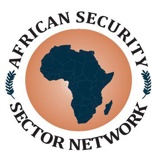Overview
Institutional Partners
Contact
The everyday politics of places in which nothing, or very little, appears to be working remain puzzling to both policy makers and development practitioners. However, such everyday politics and the realities on the ground are key to understanding what kind of policies can help to improve the lives of those living in those situations.
Orthodox policies often start with ideal versions of justice and security, instead of taking everyday realities into account. In order to survive, people use a diverse set of institutions—public and private, traditional and more formal. Militias, vigilantes, warlords and other non-state actors are conventionally and narrowly seen as threatening the ability of the state to exert a monopoly over violence. However, for ordinary people these groups may provide the only viable means of establishing their security and accessing justice. We call these in-between situations of provision of justice and security ‘hybrid governance structures’.
The Justice and Security Research Programme (JSRP) is a research consortium led by the Department of International Development (ID) at the London School of Economics and Political Science (LSE), developed in partnership with academic and media organisations from the global North and South, and with funding from the UK Department for International Development (DfID).
Between 2011-2016 the JSRP is generating primary evidence about the informal institutions that govern the lives of people in a range of fragile or war-affected locations. Our focus is on understanding the relationship between ‘official’ and ‘hybrid’ governance structures to find out what arrangements best benefit those at the receiving end of policies to support justice and security.
We place what we call the intended end-user of development policies (hereafter, the “end-user”) at the centre of our research, analysis and approach to uptake. An end-user is, as one dictionary defines it, “the person who uses [an] application, as opposed to those who developed or support it. […] End-users do not usually have administrative responsibilities or privileges [and are] certain to have a different set of assumptions than the developers who created the application”. For our purposes, end-users are those who ought to benefit from justice and security arrangements in their everyday lives. The term suggests that people living in difficult places are not passive recipients. They are also a heterogeneous group, likely to be in conflict with each other, and might have very different views of what justice and security entails.
The JSRP has its administrative headquarters at the London School of Economics and is working with the following consortium partners:
Conflict Research Group, University of Ghent
 The Conflict Research Group (CRG) is a multidisciplinary research unit at Ghent University, focused on the micro-level dynamics of civil conflicts. We concentrate both on the impact of civil conflicts on local communities, and on the links between local and global dimensions of conflict.
The Conflict Research Group (CRG) is a multidisciplinary research unit at Ghent University, focused on the micro-level dynamics of civil conflicts. We concentrate both on the impact of civil conflicts on local communities, and on the links between local and global dimensions of conflict.
African Security Sector Network
 The African Security Sector Network (ASSN) is a pan-African network of experts and organisations working in the area of Security Sector Reform (SSR). The network is headquartered in Accra, Ghana, with regional hubs in Juba, Nairobi and Johannesburg.
The African Security Sector Network (ASSN) is a pan-African network of experts and organisations working in the area of Security Sector Reform (SSR). The network is headquartered in Accra, Ghana, with regional hubs in Juba, Nairobi and Johannesburg.
Justice Africa is an NGO that seeks to promote social justice and human rights in Africa. It was established in 1999, to ensure that the vision of a Pan-African civil society came to fruition. JSRP is working with the Juba office as part of its research programme in South Sudan.
Social Science Research Council
![]() Based in New York, The Social Science Research Council (SSRC) is an independent, non-profit international organization that nurtures new generations of social scientists, fosters innovative research, and mobilizes necessary knowledge on important public issues.
Based in New York, The Social Science Research Council (SSRC) is an independent, non-profit international organization that nurtures new generations of social scientists, fosters innovative research, and mobilizes necessary knowledge on important public issues.
South-East European Research Network
 The South East European Research Network (SEERN) assists higher education institutions in South East Europe to improve their research and teaching activities in order to contribute to the wider process of democratisation of the countries in the region.
The South East European Research Network (SEERN) assists higher education institutions in South East Europe to improve their research and teaching activities in order to contribute to the wider process of democratisation of the countries in the region.
 The VJ Movement is a collaboration of more than 150 professional video journalists from almost 100 countries. As journalists we believe that “There is more than one truth.” That means offering different perspectives on a story and letting you, the user, decide.
The VJ Movement is a collaboration of more than 150 professional video journalists from almost 100 countries. As journalists we believe that “There is more than one truth.” That means offering different perspectives on a story and letting you, the user, decide.
The World Peace Foundation (WPF) is an operating foundation affiliated with Tufts University’s The Fletcher School of Law and Diplomacy. WPF aims to provide intellectual leadership for peace. Our view is that the world needs a debate about world peace, drawing rigorously on evidence and theory.
Learn more about the JSRP Team on our Who’s Who page.
Contact the JSRP via: intdev.jsrp <at> lse.ac.uk
Banner credit: United Nations Photo / Foter.com / CC BY-NC-ND




